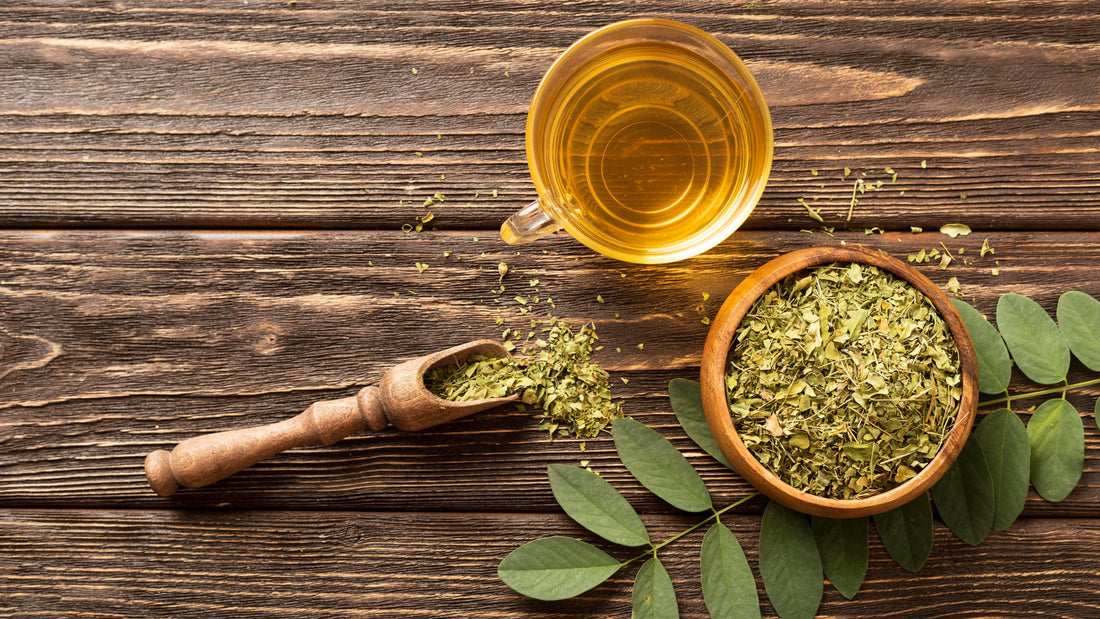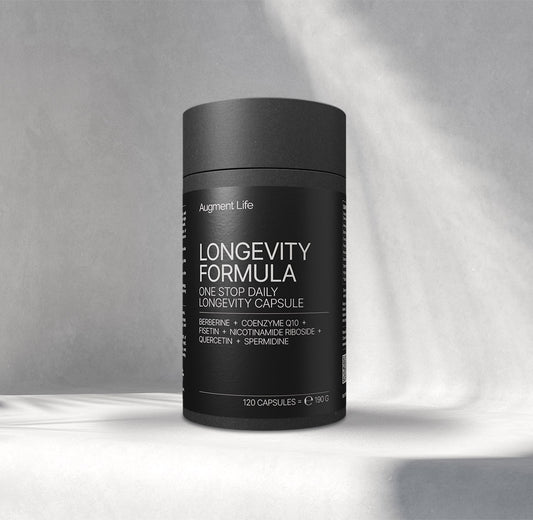Dating back from as early as 200 BC, green tea has been widely used for a wide array of purposes all over the world.1 From beverage, dessert, and even for medicinal use, it has already marked itself as a versatile ingredient that’s been used for centuries.
Green tea has also been shown to be a powerful antioxidant that may support heart, brain, and skin health, and can possibly reduce cancer risks.2
In this article, we’ll spill the tea and tell you everything you need to know about green tea extract (GTE) – one of the most common forms of green tea in the market today; its benefits as well as its side effects, to help you understand if GTE is truly your cup of tea.
It’s time for some tea party!
What is the Green Tea Extract?
Green tea extract is made from the Camellia sinensis plant. Its leaves are dried then powdered and is mainly used as a supplement or is added to food products.3 It is a concentrated form of green tea and contains potent antioxidants like flavonoids and polyphenols– the main reason why GTE provides such incredible health benefits.4
Here are some scientifically supported benefits of green tea extract.
Green Tea Extract - Health Benefits
1. May help boost energy
Due to its caffeine content, GTE has fairly become a common ingredient in most energy drinks. However, studies demonstrated inconclusive results on its effectiveness in boosting energy.
On the contrary, however, GTE that has been decaffeinated has actually been the one found to help increase exercise performance in a study among 14 active men. Consumption of decaf GTE for 4 weeks resulted in 10.9% performance improvement among the participants.5
2. May promote heart health
Packed with antioxidants, green tea extract can help lower inflammatory markers and also reduce blood pressure. This was supported by several studies that looked into the effects of GTE supplementation and heart health.
In particular, a study among 56 obese, hypertensive participants, daily supplementation with 379 mg of GTE decreases total and low-density lipoprotein cholesterol and while also increasing the high-density lipoprotein cholesterol (aka good cholesterol).6
The same results were also found in another study that included 33 patients aged between 21 and 71 years. Taking 250mg of GTE for eight weeks led to a significant reduction of total cholesterol and LDL-cholesterol among patients with dyslipidemia.7
3. May support weight loss
GTE may help lower down the numbers on the scale, several studies suggest. Specifically, the catechins and caffeine found in it could increase energy expenditure and fat oxidation in humans.
It may also play a role in the control of body composition via sympathetic activation of thermogenesis, fat oxidation, or both.8-9 Thermogenesis or heat production, is the process of producing heat in the body which is achieved by burning calories10, that is why the increase in thermogenesis leads to more calories burned.
4. May protect the brain
One most abundant catechin found in tea, EGCG (Epigallocathechin gallate), can help improve cognitive functions including memory and attention in middle-aged subjects.11
Moreover, several studies found that GTE increases the brain's effective connectivity, meaning the causal influence that one brain area exerts over another. This effect on connectivity also led to improvement in actual cognitive performance. Subjects significantly tested better on working memory tasks after the admission of green tea extract.12
Finally, in a study among healthy male volunteers who received a soft drink containing several grams of green tea extract showed improved brain performance in solving memory tasks as compared to those who did not take GTE.13
5. May promote better skin
Green tea extract with its anti-inflammatory and antioxidant properties, has been found to benefit the skin.
Particularly, supplementation of 1500 mg of decaffeinated GTE daily for 4 weeks on 80 women with moderate to severe acne resulted in improvements in their skin.14
6. May reduce risk of cancer
Our bodies undergo a continuous cycle of cell death and renewal– a normal process that keeps the balance in every cell and bodily systems.16
The polyphenols in GTE can help sustain the balance in cell production and death.16-17 When this balance is maintained, onset of cancer is reduced.
7. May lower blood sugar levels
Studies suggest that green tea and green tea extract may help lower blood glucose levels and may play a role in helping prevent type 2 diabetes and obesity. In a study in Japan, a 33% risk reduction of developing type 2 diabetes was found in subjects consuming six or more cups of green tea daily compared to those consuming less than 1 cup per week.18
According to one study, the EGCG found in green tea can increase the uptake of glucose into muscle cells. This process of EGCG stimulating glucose to enter muscle cells may also be useful to treat obesity.19
Green Tea Extract - Side Effects
Overall, green tea is well-tolerated. However, massive doses may lead to some side effects due to its caffeine content. Excess caffeine intake may lead to:
- irritability,
- sleeping problems,
- feeling jittery,
- heart palpitations.
So make sure to stay within the recommended amount daily.
According to the Food and Drug Administration, 400 mg of caffeine daily is safe for healthy adults.20
Final Words
From brain, heart, and skin health to minimizing cancer risk, green tea extract indeed provides amazing benefits to our health.
Still, always consult with your doctor before starting any kind of supplements.
References:
- Houglum, H. (2020, March 2). What is Green Tea? Art of Tea. https://www.artoftea.com/blogs/tea-101/what-is-green-tea.
- Khan, N., & Mukhtar, H. (2018). Tea Polyphenols in Promotion of Human Health. Nutrients, 11(1), 39. https://doi.org/10.3390/nu11010039.
- Senanayake, S. P. J. N. (2013). Green tea extract: Chemistry, antioxidant properties and food applications – A review. Journal of Functional Foods, 5(4), 1529–1541. https://doi.org/10.1016/j.jff.2013.08.011.
- NCI Dictionary of Cancer Terms. (n.d.). National Cancer Institute. https://www.cancer.gov/publications/dictionaries/cancer-terms/def/green-tea-extract.
- Roberts, J. D., Roberts, M. G., Tarpey, M. D., Weekes, J. C., & Thomas, C. H. (2015). The effect of a decaffeinated green tea extract formula on fat oxidation, body composition and exercise performance. Journal of the International Society of Sports Nutrition, 12(1), 1. https://doi.org/10.1186/s12970-014-0062-7.
- Bogdanski, P., Suliburska, J., Szulinska, M., Stepien, M., Pupek-Musialik, D., & Jablecka, A. (2012). Green tea extract reduces blood pressure, inflammatory biomarkers, and oxidative stress and improves parameters associated with insulin resistance in obese, hypertensive patients. Nutrition research (New York, N.Y.), 32(6), 421–427. https://doi.org/10.1016/j.nutres.2012.05.007.
- Batista, G.deA., Cunha, C. L., Scartezini, M., von der Heyde, R., Bitencourt, M. G., & Melo, S. F. (2009). Prospective double-blind crossover study of Camellia sinensis (green tea) in dyslipidemias. Arquivos brasileiros de cardiologia, 93(2), 128–134. https://doi.org/10.1590/s0066-782x2009000800010.
- Dulloo, A. G., Duret, C., Rohrer, D., Girardier, L., Mensi, N., Fathi, M., Chantre, P., & Vandermander, J. (1999). Efficacy of a green tea extract rich in catechin polyphenols and caffeine in increasing 24-h energy expenditure and fat oxidation in humans. The American journal of clinical nutrition, 70(6), 1040–1045. https://doi.org/10.1093/ajcn/70.6.1040.
- Rondanelli, M., Riva, A., Petrangolini, G., Allegrini, P., Perna, S., Faliva, M. A., Peroni, G., Naso, M., Nichetti, M., Perdoni, F., & Gasparri, C. (2021). Effect of Acute and Chronic Dietary Supplementation with Green Tea Catechins on Resting Metabolic Rate, Energy Expenditure and Respiratory Quotient: A Systematic Review. Nutrients, 13(2), 644. https://doi.org/10.3390/nu13020644.
- Trayhurn, P. (2003). THERMOGENESIS. In Elsevier eBooks (pp. 5762–5767). https://doi.org/10.1016/b0-12-227055-x/01188-3.
- Kwon, G., Kim, A., Kim, H., Cho, S., Jeon, B., Kim, W. H., & Park, W. S. (2020). Effect of Epimerized Catechins-Rich Green Tea Extract on Global Cognitive Function in Healthy Individuals: A Pilot Study. Journal of Food and Nutrition Research, 8(3), 139–148. https://doi.org/10.12691/jfnr-8-3-4.
- Schmidt, A., Hammann, F., Wölnerhanssen, B., Meyer-Gerspach, A. C., Drewe, J., Beglinger, C., & Borgwardt, S. (2014). Green tea extract enhances parieto-frontal connectivity during working memory processing. Psychopharmacology, 231(19), 3879–3888. https://doi.org/10.1007/s00213-014-3526-1.
- Schmidt, A., Hammann, F., Wölnerhanssen, B., Meyer-Gerspach, A. C., Drewe, J., Beglinger, C., & Borgwardt, S. (2014). Green tea extract enhances parieto-frontal connectivity during working memory processing. Psychopharmacology, 231(19), 3879–3888. https://doi.org/10.1007/s00213-014-3526-1.
- Lu, P. H., & Hsu, C. H. (2016). Does supplementation with green tea extract improve acne in post-adolescent women? A randomized, double-blind, and placebo-controlled clinical trial. Complementary therapies in medicine, 25, 159–163. https://doi.org/10.1016/j.ctim.2016.03.004.
- Elmore S. (2007). Apoptosis: a review of programmed cell death. Toxicologic pathology, 35(4), 495–516. https://doi.org/10.1080/01926230701320337.
- Shirakami, Y., & Shimizu, M. (2018). Possible Mechanisms of Green Tea and Its Constituents against Cancer. Molecules (Basel, Switzerland), 23(9), 2284. https://doi.org/10.3390/molecules23092284.
- Yang, C. S., & Wang, H. (2016). Cancer Preventive Activities of Tea Catechins. Molecules (Basel, Switzerland), 21(12), 1679. https://doi.org/10.3390/molecules21121679.
- Iso, H., Date, C., Wakai, K., Fukui, M., Tamakoshi, A., & JACC Study Group (2006). The relationship between green tea and total caffeine intake and risk for self-reported type 2 diabetes among Japanese adults. Annals of internal medicine, 144(8), 554–562. https://doi.org/10.7326/0003-4819-144-8-200604180-00005.
- Mi, Y., Qi, G., Fan, R., Qiao, Q., Sun, Y., Gao, Y., & Liu, X. (2017). EGCG ameliorates high-fat- and high-fructose-induced cognitive defects by regulating the IRS/AKT and ERK/CREB/BDNF signaling pathways in the CNS. FASEB journal : official publication of the Federation of American Societies for Experimental Biology, 31(11), 4998–5011. https://doi.org/10.1096/fj.201700400RR.
- Pure and highly concentrated caffeine. U.S. Food and Drug Administration. https://www.fda.gov/food/dietary-supplement-products-ingredients/pure-and-highly-concentrated-caffeine.





